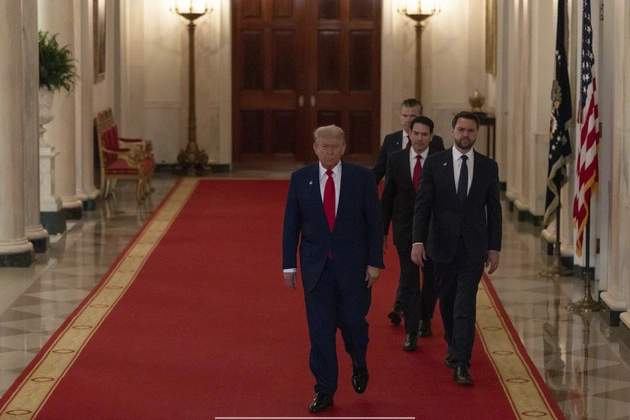
Vice President JD Vance shared his views on the recent developments regarding Iran’s nuclear program and President Trump’s strategic decisions. Despite the escalating tensions, Vance emphasized that the current situation does not automatically escalate into a broader conflict in the Middle East.
During an interview with NBC’s Kristen Welker on ‘Meet the Press,’ Vance highlighted the opportunity presented by the strike on Iranian nuclear facilities. He proposed that this event could serve as a catalyst to revitalize negotiations aimed at limiting Iran’s nuclear capabilities.
Addressing Misconceptions
Vance clarified that the United States is not engaged in a direct war with Iran but rather focused on countering Iran’s nuclear ambitions. This distinction is crucial in understanding the strategic objectives behind the recent military actions.
President Trump’s announcement of targeted strikes on key Iranian nuclear sites, including Fordo, Natanz, and Esfahan, stirred mixed reactions. While the extent of the damage inflicted on Iran’s nuclear infrastructure remains uncertain, skeptics within the GOP have largely aligned with the administration’s stance.
An Evolving Stance
Notably, Vance’s stance on proactive military interventions has evolved over time. As a former Marine who served in Iraq, he previously opposed direct military engagement with Iran. However, recent events have prompted a shift in his perspective, attributing this change to President Trump’s demonstrated leadership and strategic acumen.
Emphasizing the need for a reset in diplomatic relations, Vance underscored Iran’s perceived reluctance to engage meaningfully in negotiations. He pointed out Iran’s delaying tactics and the urgency of addressing the potential resurgence of their nuclear program.
Looking Ahead
As the international community awaits Iran’s response to the recent developments, Vance remains cautiously optimistic. He views the current situation as an opportunity for Iran to choose a more constructive path and prioritize regional stability.
Ultimately, Vance’s insights shed light on the complexities of foreign policy in the Middle East and the delicate balance between deterrence and diplomacy.











